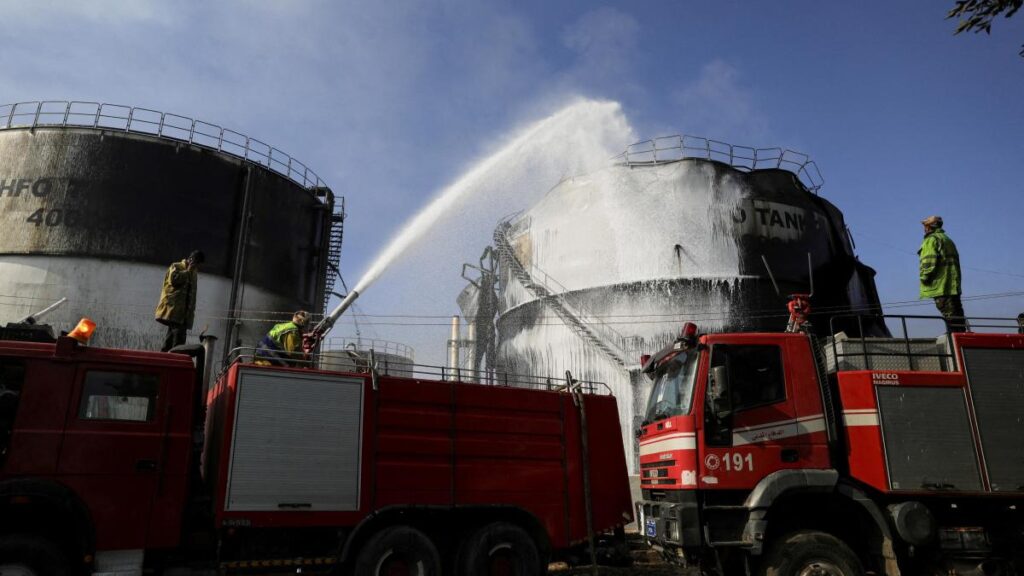In recent months, tensions between Israel and the Iran-backed Houthi movement in Yemen have escalated, culminating in a series of Israeli airstrikes targeting Houthi military facilities. These strikes are a direct response to missile and drone attacks from Yemen that have largely been aimed at Israel. According to Israeli military officials, key targets included strategic locations along the Red Sea and energy infrastructure in Yemen’s capital, Sanaa. Reports from Houthi-controlled media claimed that nine individuals lost their lives during these targeted strikes on military ports and oil facilities. The escalation comes in the wake of ongoing violence following the outbreak of conflict in Gaza in October 2023, with the Houthis expressing solidarity with the Palestinian cause and initiating hostilities against Israel and international maritime activities.
The backdrop to these developments includes a notable missile attack from Yemen that managed to reach Israel, partially intercepted, but still resulting in damage to a school in Ramat Gan, a suburb of Tel Aviv. Israeli air defenses have reportedly intercepted around 400 missiles and drones that the Houthis have launched at Israel since the initiation of hostilities, highlighting the intense and ongoing nature of the conflict. On Thursday, the Israeli public was forced to respond to air raid warnings, while the IDF confirmed their immediate retaliation by targeting Houthi military installations shortly following the missile incident. The damage in Ramat Gan did not result in injuries but sparked fears and immediate protective actions among local residents as sirens indicated incoming threats.
The Houthi leadership, fortified by their control of northwest Yemen, characterized their attacks against Israel as a moral and religious obligation in light of the situation in Gaza. Reports indicated that concurrent with the Israeli strikes, the Houthis launched two hypersonic ballistic missiles targeting military sites around Tel Aviv, claiming their military objectives were met successfully. A Houthi spokesman affirmed that the group remains undeterred and committed to their actions in retaliation against perceived Israeli aggression in Gaza. The Israeli military condemned the Houthi operations as violations of international law and emphasized the group’s role as a significant threat to regional stability and security.
Israeli Prime Minister Benjamin Netanyahu, reflecting the government’s stance, portrayed the Houthis as part of Iran’s “axis of evil” and underscored his administration’s determination to protect Israeli citizens against any threats. Israeli military strategy appears to be increasingly focused on preventive strikes against the Houthis, aiming to dismantle their capabilities to launch attacks on Israel and international shipping routes. This marked escalation in military engagement is represented as part of Israel’s broader strategy to counter Iranian influence in the region. Defence Minister Israel Katz amplified this warning by emphasizing that the long reach of Israeli military tactics would extend against the Houthis as well.
This conflict phase is not unprecedented, as Israel had previously conducted air operations against Houthi positions, including strikes in July and September 2023 following Houthi drone and missile attacks that culminated in casualties in Israel. Allied forces, including the US and UK, have also partaken in military actions against Houthi assets aiming to safeguard international maritime routes that have increasingly come under threat due to Houthi aggressions. The presence of multiple nations’ military operations against the Houthis highlights both the international ramifications of regional conflicts and the collaborative resolve to address the maritime security challenges posed by the group.
As tensions continue to mount, the Houthis have maintained a narrative of supporting the Palestinian struggle against Israel, asserting that their military actions are framed as a direct response to Israeli policies in Gaza. The Houthis have claimed responsibility for attacks on shipping vessels and military installations, portraying these actions as part of their duty to resist what they consider oppressive forces. Consequently, this complex environment reflects a broader geopolitical struggle, with multiple players involved—signifying an intricate web of military engagements driven by regional alliances, historical grievances, and contemporary conflicts that further complicate the peace landscape in the Middle East.

